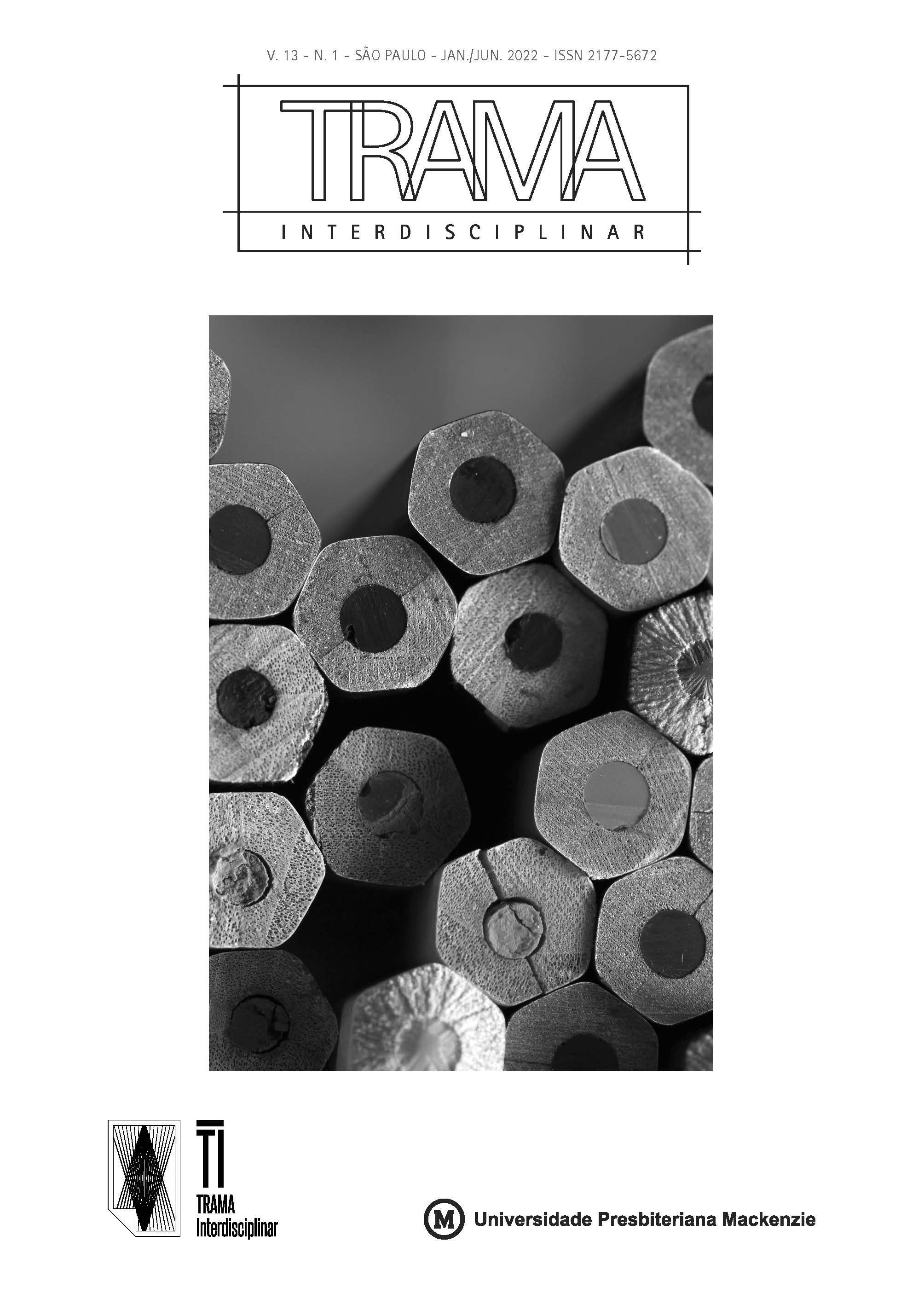The Principal’s Role in the Development of Relationships in the Integral Education Program - São Paulo (PEI)
Keywords:
Integral Education Program (PEI); Public education; Integral Education; School Director; School Manager.Abstract
This article presents the role of the principal as a builder of connections between people at school. These ties favor the construction of a democratic and collaborative school/ environment. The following is an excerpt from research carried out in two public schools that had been developing the Integral Teaching Program (PEI) in the city of São Paulo in which principals, vice-principals, pedagogical coordinators, teachers and students, whom had been in an integral period in the program and involved in the research for the program. The data was collected over a period of two years with interviews, observations, and document analysis. The analyses emphasized the main role of the principal in this process. The principals were assigned the role of facilitator between the subjects. The data demonstrated the success of the pedagogical process when leadership skills were developed in all participants in the school. In this way, it was emphasized that the improvement of relationships between school professionals and students in the PEI, was contingent upon the collaboration of their pedagogical, cognitive, and affective needs. This analysis of the data demonstrated that the established interactions at different times and in different environments mobilized important changes provided by the PEI. This included the development of the skills and attitudes of everyone involved. This further enabled and redefined the role that each person must develop at school, which promoted learning that was involved in attributing a higher level of value for the school learning and working environments, all while emphasizing the importance of human relationships. This research demonstrated that for the development of human interactions and student advocates, the principal needs to be able to count on the support of everyone involved in the educational process, including students and their families, in a collective and collaborative effort/ endeavor.
Downloads
References
BARBOSA, R.C. Aprendizagens e relações no tempo e espaço escolares: suas ressignificações no contexto do Programa de Ensino Integral do Estado de São Paulo (PEI). 2016. 136 p. Tese (Doutorado em Educação: Psicologia da Educação) – Pontifícia Universidade Católica de São Paulo, São Paulo, 2011.
BRASIL. Planejando a Próxima Década: Conhecendo as 20 Metas do Plano Nacional de Educação. Ministério da Educação / Secretaria de Articulação com os Sistemas de Ensino (MEC/ SASE), 2014. Disponível em: https://pne.mec.gov.br/images/pdf/pne_conhecendo_20_metas.pdf. Acesso em: 10.09.2021.
BRASIL. LDB : Lei de Diretrizes e Bases da Educação Nacional. – 4. ed. – Brasília, DF : Senado Federal, Coordenação de Edições Técnicas, 2020.
CAVALIERE. A.M. Escolas de Tempo Integral versus Alunos em Tempo Integral. “Em Aberto”. Brasília, v. 22, n. 80, p. 51-63, abr. 2009
CRUZ, T.; CUCONATO, G.; SÁ, E. “Relatório de Política Educacional”: dados para um debate democrático na educação. Brasília, novembro de 2018. Disponível em: www.d3e.com.br. Acesso em: 17.09.2021.
GONÇALVES, A.S. Reflexões sobre Educação Integral e Escola de Tempo Integral. Cadernos CENPEC: Educação, Cultura e Ação Comunitária. N. 2, 2º sem. 2006. (p. 15-24)
GUARÁ, I.M.F.R. É imprescindível educar integralmente. Cadernos CENPEC: Educação, Cultura e Ação Comunitária. N. 2, 2º sem. 2006. (p. 15-24)
HAGUETTE, T. M. F. “Metodologias qualitativas na sociologia”. 13. ed. Petrópolis: Vozes, 2011.
LIBÂNEO, J. C.; OLIVEIRA, J. F.; TOSCHI, M. S. “Educação escolar”: políticas, estrutura e organização. 10. ed. São Paulo: Cortez, 2012.
LÜDKE, M.; ANDRÉ; M. E. D. A. Pesquisa em educação: abordagens qualitativas. São Paulo: EPU, 1986.
PARO, V. H. “A educação, a política e a administração”: reflexões sobre a prática do diretor de escola. Educação e Pesquisa, São Paulo, v. 36, n. 3, p. 763-778, set./dez. 2010.
SÃO PAULO. Secretaria da Educação do Estado de São Paulo. Diretrizes do Programa Ensino Integral. 2014. Disponível em: http://www.educacao.sp.gov.br/a2sitebox/arquivos/documentos/726.pdf. Último acesso em: 16 jan. 2016. (2014a)
SÃO PAULO. Tutorial de Recursos Humanos Programa Ensino Integral. Disponível em: http://www.educacao.sp.gov.br/a2sitebox/arquivos/documentos/343.pdf. Último acesso em: 16 jan. 2016. (2014b)
SÃO PAULO. Secretaria da Educação do Estado de São Paulo. Resolução SE nº 12, de 31 de janeiro de 2012. Institui o Projeto Escola Estadual de Ensino Médio de Período Integral e estabelece diretrizes para a organização e o funcionamento das Escolas Estaduais de Ensino Médio de Período Integral de que trata a Lei Complementar nº 1.164, de 04 de janeiro de 2012, e dá providências correlatas. Disponível em: http://siau.edunet.sp.gov.br/ItemLise/arquivos/12_12.HTM. Acesso em: 10.09.21.
SÃO PAULO. Assembleia Legislativa do Estado de São Paulo. Lei Complementar nº 1.164, de 04 de janeiro de 2012. Institui o Regime de dedicação plena e integral – RDPI e a Gratificação de dedicação plena e integral – GDPI aos integrantes do quadro do Magistério em exercício nas escolas estaduais de ensino médio de período integral, e dá providências correlatas. Texto atualizado até a Lei Complementar no 1.361, de 21 de outubro de 2021. Disponível em: https://www.al.sp.gov.br/repositorio/legislacao/lei.complementar/2012/lei.complementar-1164-04.01.2012.html. Último acesso em: 10.09.2021. (2021)
SÃO PAULO. Secretaria da Educação do Estado de São Paulo. Resolução SE nº 89, de 09 de dezembro de 2005. Dispõe sobre o projeto Escola de Tempo Integral. Disponível em: http://www.educacao.sp.gov.br/lise/sislegis/detresol.asp?strAto=200512090089. Último acesso em: 16 jan. 2016.
TEIXEIRA, A. Centro Educacional Carneiro Ribeiro. Revista Brasileira de Estudos Pedagógicos, Rio de Janeiro, v. 31, n. 73, p. 78-84, jan./mar. 1959. Disponível em: http://www.rbep.inep.gov.br/ojs3/index.php/rbep/issue/view/462/99. Acesso em: 20.11.21.
Downloads
Published
How to Cite
Issue
Section
License
A Revista TRAMA Interdisciplinar reserva os direitos autorais das contribuições publicadas em suas páginas. Esses direitos abrangem a publicação da contribuição, em português, em qualquer parte do mundo, incluindo os direitos às renovações, expansões e disseminações da contribuição, bem como outros direitos subsidiários. Autores têm permissão para a publicação da contribuição em outro meio, impresso ou digital, em português ou em tradução, desde que os devidos créditos sejam dados à Revista TRAMA Interdisciplinar. O conteúdo dos artigos é de responsabilidade de seus autores.








